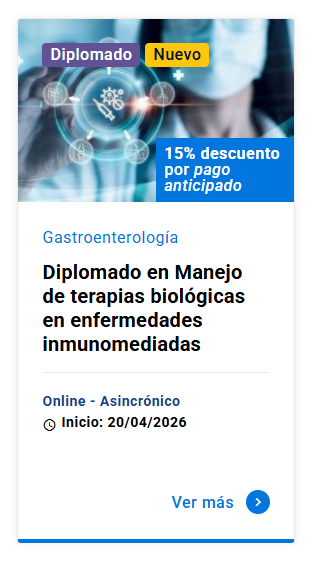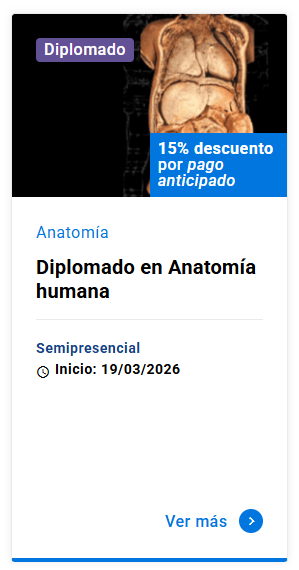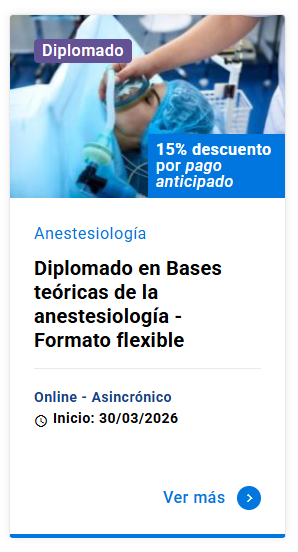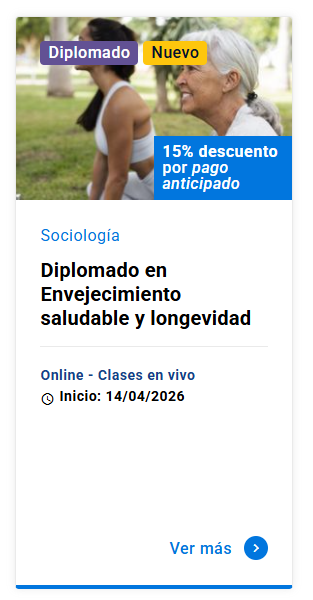Score genético predice agresividad del cáncer de próstata.
DOI:
https://doi.org/10.11565/arsmed.v43i2.1116Palabras clave:
SNPs, volumen tumoral., Score genético, cáncer de próstata., antígeno prostáticoResumen
Introducción: Establecer un score genético utilizando los polimorfismos de nucleótido único (SNPs) del gen RNAsel y regiones cromosómicas 8q24 y 17q12-24 en combinación con el antígeno específico de la próstata (PSA) para predecir la agresividad del cáncer de próstata (CaP).
Pacientes y métodos: hombres con CaP tratados con prostatectomía radical. Se analizaron variables clínicas y patológicas: edad al diagnóstico, PSA al diagnóstico, el volumen tumoral (TV) y extensión extracapsular (ECE) según el TNM (tumour, node and metástasis) (ECE ≥T3) y score de Gleason. Desarrollamos un modelo de puntaje genético usando regresión logística multivariable.
Resultados: se incluyeron 86 pacientes sometidos a prostatectomía radical. Edad promedio fue de 62 ± 7,5 años. El promedio de PSA fue de 11,3 ± 10,6 ng/mL. Treinta y un pacientes (36%) tuvieron ECE. La mediana del TV fue de 3,8 cc. Un PSA ≥ 10 ng/mL se asoció con una mayor tasa de ECE (p <0,05) y TV más alto (p = 0,032). En el análisis univariable, los pacientes con > 1 SNP tienen mayor riesgo de ECE que los pacientes con ≤ 1 SNP (42% vs. 10,5%, p = 0,01), y los pacientes con ≥ 3 SNP tienen más TV que los pacientes con <3 SNP (60% vs. 32%, p = 0,015). Se crearon dos modelos de riesgo usando el número de SNP y PSA ≥ o <10 ng/mL para predecir ECE (sensibilidad 67% y especificidad 84%) y TV (sensibilidad 59% y especificidad 70%).
Conclusiones: El score genético presentado en este estudio es una herramienta novedosa para predecir indicadores de agresividad del CaP, como ECE y TV.
Descargas
Citas
Aly, M., Wiklund, F., Xu, J., Isaacs, W. B., Eklund, M., D'Amato, M., Adolfsson, J., & Grönberg, H. (2011). Polygenic risk score improves prostate cancer risk prediction: results from the Stockholm-1 cohort study. European urology 60, 21-28. DOI: https://doi.org/10.1016/j.eururo.2011.01.017
Ãlvarez-Cubero, M. J., Martinez-Gonzalez, L. J., Saiz, M., Carmona-Saez, P., Alvarez, J. C., Pascual-Geler, M., & Cozar, J. M. (2015). Prognostic role of genetic biomarkers in clinical progression of prostate cancer. Experimental & molecular medicine 47, e176. DOI: https://doi.org/10.1038/emm.2015.43
Benafif, S. & Eeles, R. (2016). Genetic predisposition to prostate cancer. British Medical Bulletin 120, 75-89. DOI: https://doi.org/10.1093/bmb/ldw039
Caire, A. A., Sun, L., Lack, B. D., Lum, K., Tang, P., Stackhouse, D. A., & Moul, J. W. (2010). Predicting non-organ-confined prostate cancer in men diagnosed after 2000. Prostate cancer and prostatic diseases 13, 248-251. DOI: https://doi.org/10.1038/pcan.2010.15
Chan, J. Y., Li, H., Singh, O., Mahajan, A., Ramasamy, S., Subramaniyan, K., & Chia, S. E. (2013). 8q24 and 17q prostate cancer susceptibility loci in a multiethnic Asian cohort. Urologic Oncology: Seminars and Original Investigations 31, 1553-1560. DOI: https://doi.org/10.1016/j.urolonc.2012.02.009
Chung, B. I., Tarin, T. V., Ferrari, M., & Brooks, J. D. (2011). Comparison of prostate cancer tumor volume and percent cancer in prediction of biochemical recurrence and cancer specific survival. Urologic Oncology: Seminars and Original Investigations 29, 314-318. DOI: https://doi.org/10.1016/j.urolonc.2009.06.017
Cucchiara, V., Cooperberg, M.R., Dall'Era, M., Lin, D.W., Montorsi, F., Schalken, JA., & Evans, C.P. (2018). Genomic Markers in Prostate Cancer Decision Making. European Urology 73, 572-582. DOI: https://doi.org/10.1016/j.eururo.2017.10.036
D'amico, A. V., Whittington, R., Malkowicz, S. B., Schultz, D., Blank, K., Broderick, G. A., & Wein, A. (1998). Biochemical outcome after radical prostatectomy, external beam radiation therapy, or interstitial radiation therapy for clinically localized prostate cancer. Jama 280, 969-974. DOI: https://doi.org/10.1001/jama.280.11.969
Eeles, R., & Ni-Raghallaigh, H. (2018). Men with a susceptibility to prostate cancer and the role of genetic based screening. Translational Andrology and Urology 7, 61-69. DOI: https://doi.org/10.21037/tau.2017.12.30
El Gammal, A. T., Brüchmann, M., Zustin, J., Isbarn, H., Hellwinkel, O. J., Köllermann, J., & Bokemeyer, C. (2010). Chromosome 8p deletions and 8q gains are associated with tumor progression and poor prognosis in prostate cancer. Clinical cancer research 16, 56-64. DOI: https://doi.org/10.1158/1078-0432.CCR-09-1423
Giovannucci, E., Rimm, E. B., Liu, Y., Leitzmann, M., Wu, K., Stampfer, M. J., & Willett, W. C. (2003). Body mass index and risk of prostate cancer in US health professionals. Journal of the National Cancer Institute 95, 1240-1244. DOI: https://doi.org/10.1093/jnci/djg009
Hindorff, L. A., Sethupathy, P., Junkins, H. A., Ramos, E. M., Mehta, J. P., Collins, F. S., & Manolio, T. A. (2009). Potential etiologic and functional implications of genome-wide association loci for human diseases and traits. Proceedings of the National Academy of Sciences 106, 9362-9367. DOI: https://doi.org/10.1073/pnas.0903103106
Hu, Y. L., Zhong, D., Pang, F., Ning, Q. Y., Zhang, Y. Y., Li, G., & Mo, Z. N. (2013). HNF1b is involved in prostate cancer risk via modulating androgenic hormone effects and coordination with other genes. Genet Mol Res 12, 1327-1335. DOI: https://doi.org/10.4238/2013.April.25.4
Kashyap, A., Kluźniak, W., Wokołorczyk, D., Gołąb, A., Sikorski, A., Słojewski, M., & Antczak, A. (2014). The presence of prostate cancer at biopsy is predicted by a number of genetic variants. International journal of cancer 134, 1139-1146. DOI: https://doi.org/10.1002/ijc.28447
Kearns, J. T., Lapin, B., Wang, E., Roehl, K. A., Cooper, P., Catalona, W. J., & Helfand, B. T. (2016). Associations between iCOGS single nucleotide polymorphisms and upgrading in both surgical and active surveillance cohorts of men with prostate cancer. European urology 69, 223-228. DOI: https://doi.org/10.1016/j.eururo.2015.09.004
Nam, R. K., Zhang, W. W., Trachtenberg, J., Seth, A., Klotz, L. H., Stanimirovic, A., Punnen, S., Venkateswaran, V., Toi, A., Loblaw, D.A., Sugar, L., Siminovitch, K.A., & Sugar, L. (2009). Utility of incorporating genetic variants for the early detection of prostate cancer. Clinical Cancer Research 15, 1787-1793. DOI: https://doi.org/10.1158/1078-0432.CCR-08-1593
Nordström, T., Aly, M., Eklund, M., Egevad, L., & Grönberg, H. (2014). A genetic score can identify men at high risk for prostate cancer among men with prostate-specific antigen of 1–3 ng/ml. European urology 65, 1184-1190. DOI: https://doi.org/10.1016/j.eururo.2013.07.005
Partin, A. W., Kattan, M. W., Subong, E. N., Walsh, P. C., Wojno, K. J., Oesterling, J. E., Scardino, P.T., & Pearson, J. D. (1997). Combination of prostate-specific antigen, clinical stage, and Gleason score to predict pathological stage of localized prostate cancer: a multi-institutional update. Jama 277, 1445-1451. DOI: https://doi.org/10.1001/jama.1997.03540420041027
Reinhardt, D., Helfand, B. T., Cooper, P. R., Roehl, K. A., Catalona, W. J., & Loeb, S. (2014). Prostate cancer risk alleles are associated with prostate cancer volume and prostate size. The Journal of urology 191, 1733-1736. DOI: https://doi.org/10.1016/j.juro.2013.12.030
Rojas, P. A., Torres-Estay, V., Cerda-Infante, J., Montecinos, V. P., Domínguez, J., Arenas, J., Godoy, A.S., & San Francisco, I. F. (2014). Association of a single-nucleotide polymorphism from chromosome 17q12 with the aggressiveness of prostate cancer in a Hispanic population. Journal of cancer research and clinical oncology 140, 783-788. DOI: https://doi.org/10.1007/s00432-014-1635-1
San Francisco, I. F., Rojas, P. A., Torresâ€Estay, V., Smalley, S., Cerdaâ€Infante, J., Montecinos, V. P., Hurtado, C., & Godoy, A. S. (2014). Association of RNASEL and 8q24 variants with the presence and aggressiveness of hereditary and sporadic prostate cancer in a Hispanic population. Journal of cellular and molecular medicine 18, 125-133. DOI: https://doi.org/10.1111/jcmm.12171
Siegel, R., Ma, J., Zou, Z., & Jemal, A. (2014). Cancer statistics, 2014. CA: a cancer journal for clinicians 64, 9-29. DOI: https://doi.org/10.3322/caac.21208
Ministerio de Salud de Chile. (2012). Primer informe de registros poblacionales de cáncer de Chile. Quinquenio 2003-2007. Ministerio de Salud. Gobierno de Chile, pp. 8-12. Accedido en https://www.paho.org/chi/index.php?option=com_docman&view=download&alias=174-informe-rpc-chile-2003-2007&category_slug=cancer&Itemid=1145 el 15 de octubre de 2017.
Steinberg, G. D., Carter, B. S., Beaty, T. H., Childs, B., & Walsh, P. C. (1990). Family history and the risk of prostate cancer. The prostate 17, 337-347. DOI: https://doi.org/10.1002/pros.2990170409
Zhou, J. R., & Blackburn, G. L. (1997). Bridging animal and human studies: what are the missing segments in dietary fat and prostate cancer?. The American journal of clinical nutrition 66, 1572S-1580S. DOI: https://doi.org/10.1093/ajcn/66.6.1572S
Descargas
Publicado
Cómo citar
Licencia
Derechos de autor 2018 ARS MEDICA Revista de Ciencias Médicas

Esta obra está bajo una licencia internacional Creative Commons Atribución-CompartirIgual 4.0.
Los autores/as conservan sus derechos de autor y garantizan a la revista el derecho de primera publicación de su obra, la que estará simultáneamente sujeta a la Licencia CC BY-SA 4.0 (Ver declaración de Acceso Abierto).







